From Isolation to Advocacy: The Determined Firefighter
Published on September 24, 2025
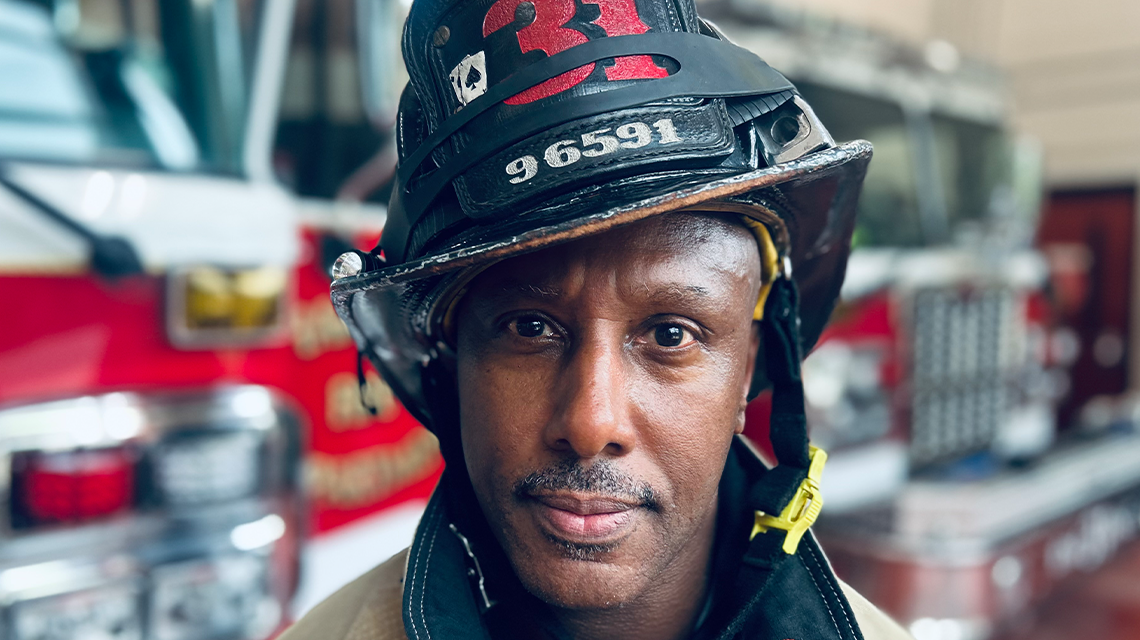
Firefighter Mark Meylor outside Charlotte Firehouse 31, where his journey from cancer patient to advocate inspires his crew and the fire service.
By Kevin Campbell, Charlotte Fire
Facing the Fire Within
Firefighter Mark Meylor has faced plenty of dangerous calls. He has run into burning buildings, pulled hose in blistering heat, and carried the weight of responsibility that comes with protecting lives. But the alarm that changed his life forever did not come from the firehouse.
It came from his own body.
It was 2014, three years before Meylor joined Charlotte Fire, when an ordinary evening at home with his wife, Deborah “Bibi” Meylor, took a startling turn.

The front line for Meylor’s daily work, Engine 31 inside the bay at Firehouse 31.
“I suddenly felt like I needed to use the bathroom,” Meylor recalled. “When I did, it was nothing but blood. No pain, nothing else, just blood. That moment will stick with me forever.”
The shock was immediate, but so was the confusion. He felt fine. No fever, no weakness. He told Bibi and decided to call the doctor the next morning.
“I think part of me didn’t want to believe something serious could be wrong,” he said.
Tests led to a referral to a urologist, and before long, Meylor was sitting in an exam room with Bibi beside him.
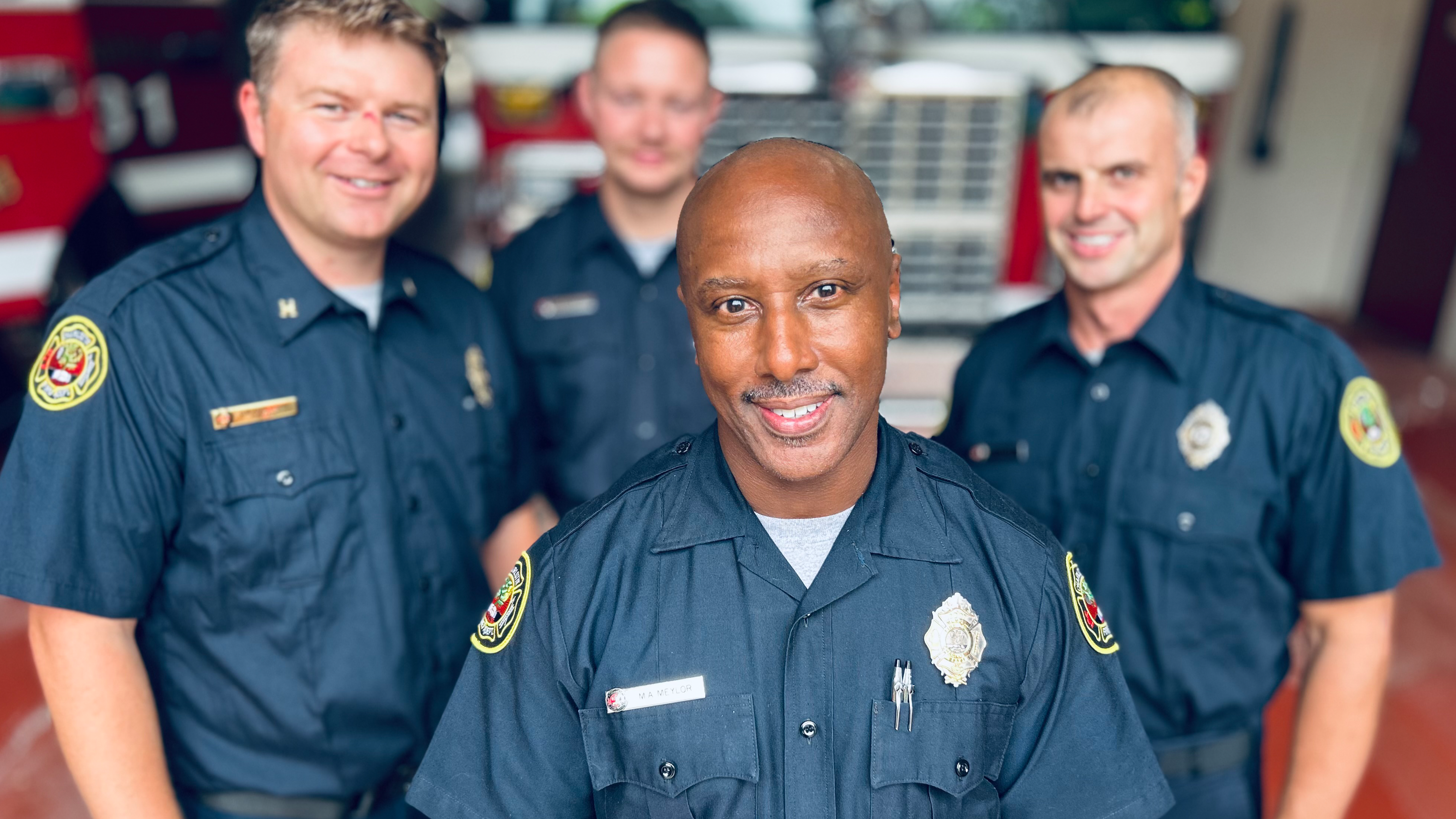
Standing with fellow firefighters at Firehouse 31, Meylor values the camaraderie that carried him through his career and his health battle.
“The doctor came in with a straight face and told me I had cancer,” he said. “Everything after that was a blur. I could see his mouth moving, but I wasn’t really hearing the words.”
Bibi stepped in, telling the doctor to speak directly to her. That brought Meylor back to the moment, but the weight of the news did not lift.
“I had spent my whole life running toward emergencies. Now I was the one in trouble, and I couldn’t run from it.”
The cancer was in his prostate. The doctor laid out three treatment options, including radiation, partial removal, or a complete removal. Meylor chose to have the prostate removed.
“I just wanted it gone,” he said. “No halfway. Get it out.”
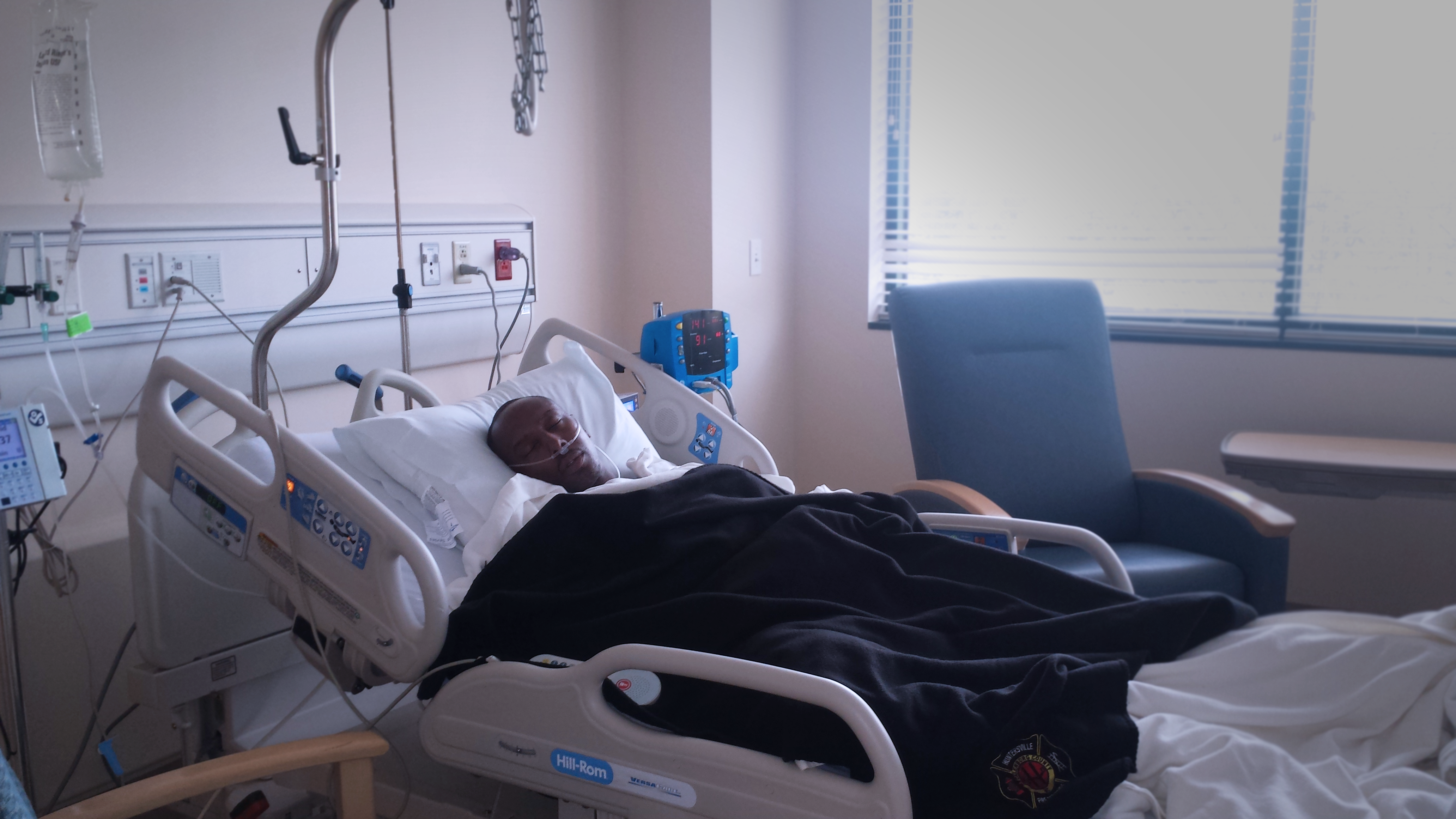
Months after his surgery, Meylor faced unexpected complications that required hospitalization, a challenge he says many prostate cancer survivors do not talk about openly.
Surgery went well, and his doctor was confident the cancer had not spread. But the weeks and months after the operation were harder than Meylor expected. “I thought I would bounce back fast, like I always had,” he said. “But the truth is, recovery was slow.”
Life after prostate removal came with challenges Meylor had not anticipated. Regaining bladder control took time and daily effort, and there were changes in sexual function that could feel deeply personal and difficult to talk about. “You are dealing with things that can make you feel like you have lost a part of yourself,” he said. “It is not just physical, it is emotional. And you have to figure out how to handle both.”
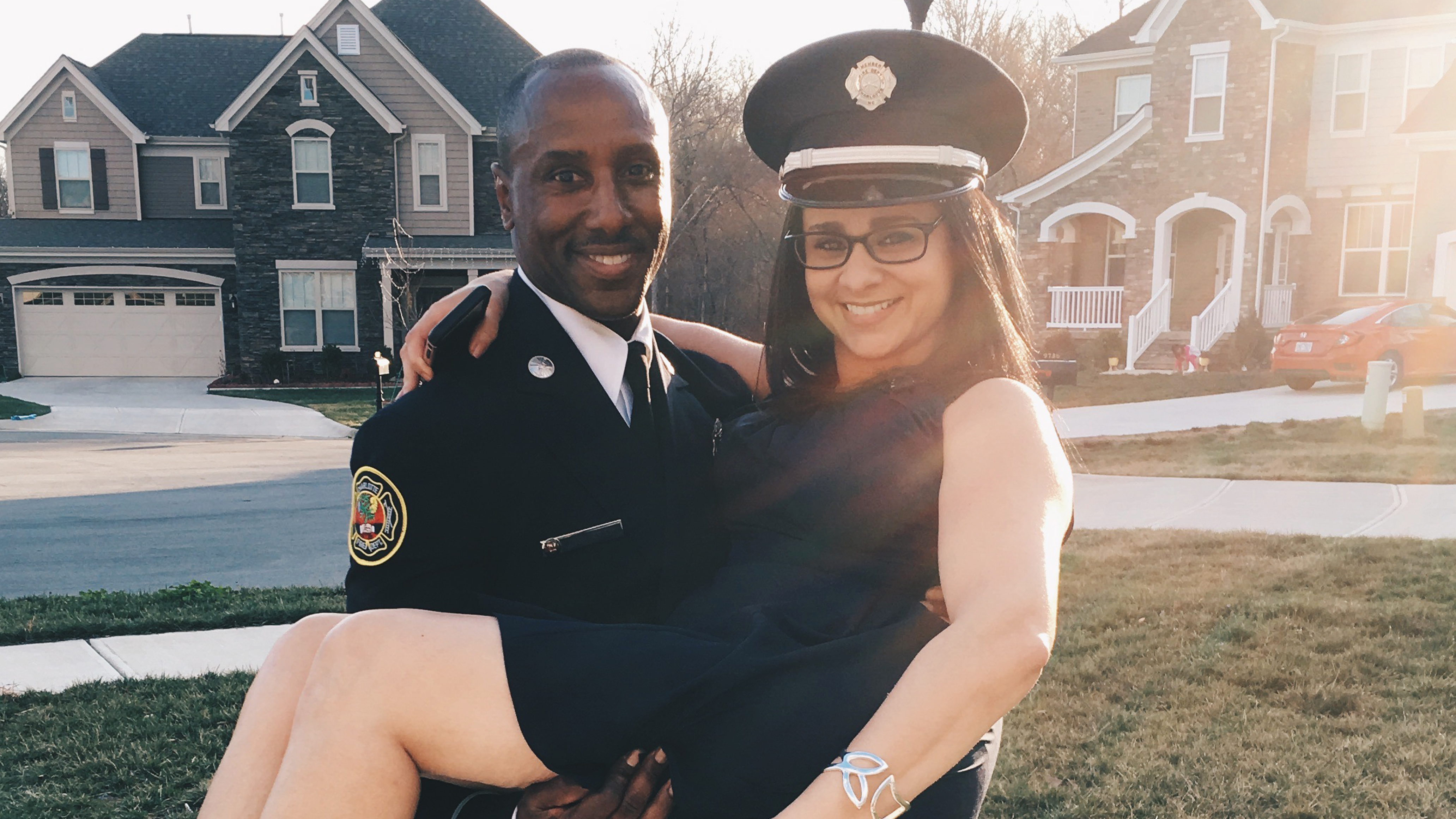
Mark Meylor with his wife, Deborah “Bibi” Meylor, after graduating from the Charlotte Fire Training Academy in 2017, three years after she supported him through prostate cancer surgery.
Through all of it, Bibi was by his side. “Bibi was my rock,” Meylor said. “She took care of me, checked on me constantly, and never made me feel like I was less than I was before. In the fire service, we say we have got each other’s backs. In life, she had mine.”
Meylor did not tell his fellow firefighters in Huntersville about the diagnosis until much later. “I didn’t want it to turn into locker-room talk. I didn’t want to be the butt of jokes, even harmless ones,” he said. “It was easier to keep it between me and my family.”
That decision left him carrying the weight of cancer mostly alone, and at times, the isolation was as heavy as the diagnosis itself. “You go through all these changes, and you don’t know anyone else who has been through it. You start thinking you’re the only one, and that’s a lonely place to be.”
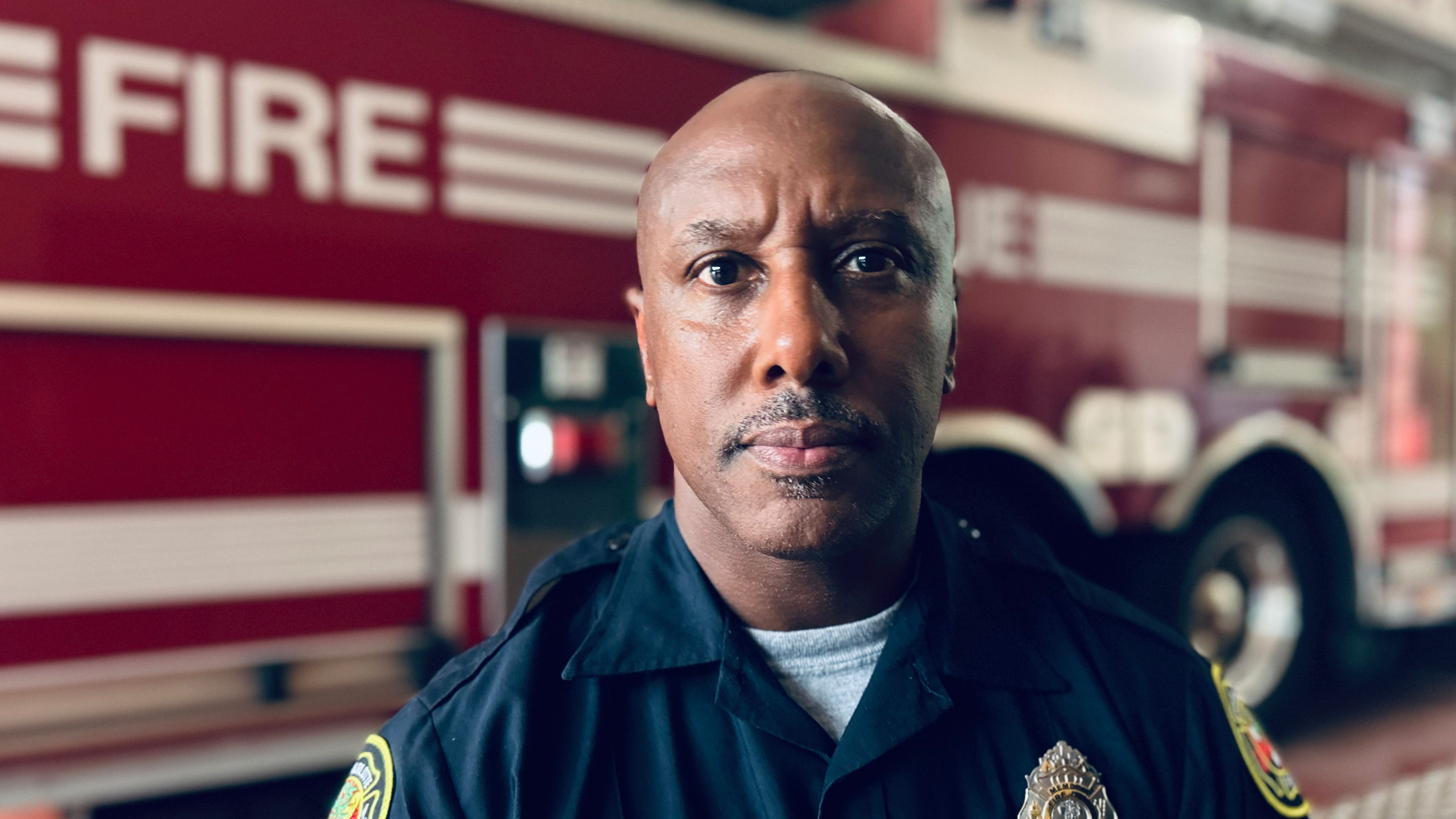
Meylor in uniform at Firehouse 31, reflecting on his journey from diagnosis to survivorship.
Years later, after joining Charlotte Fire in 2017 at the age of 47, Meylor got a call from Capt. Russ Harwell. Harwell had just been diagnosed with prostate cancer and remembered overhearing Meylor mention it to a chief years before. “He asked me what to expect,” Meylor said. “That was the first time I really opened up to someone outside my family.”
Meylor told Harwell everything, what surgery was like, how recovery really felt, and the emotional toll of the journey. “It was the conversation I wish I had when I was diagnosed,” Meylor said. “It made me realize that talking about it could help somebody else.”
That conversation changed Meylor’s perspective. “I realized keeping quiet does not protect you, it just keeps the next guy in the dark,” he said. “If we talk about it, maybe someone else will not feel so alone. Maybe they will get checked sooner.”
Now, if a firefighter at Charlotte Fire is diagnosed with prostate cancer, Meylor wants to be one of the first calls they make. “I don’t have all the answers, but I can tell you what I went through. I can tell you what to expect. Sometimes that is what you need most, to know someone else has walked this road and made it to the other side.”
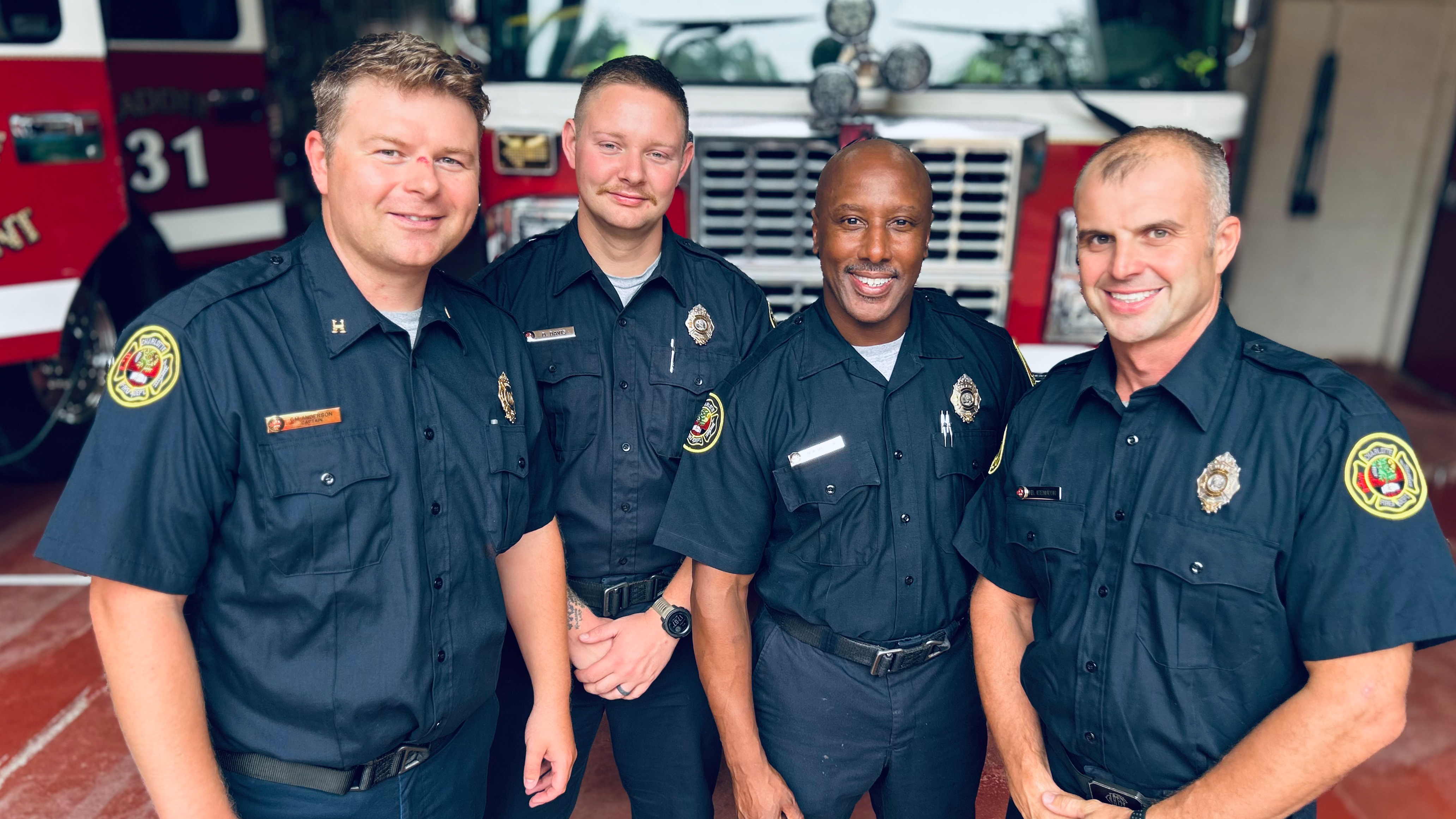
Meylor with his Engine 31 crew, the team he says has his back on the fireground and beyond.
Looking back, Meylor wishes he had opened up sooner. “I think about those early days, when I was keeping it to myself, and I realize I made it harder than it had to be,” he said. “You think you’re protecting yourself, or your pride, but you’re just shutting yourself off from the people who could support you.”
He now encourages firefighters, and all men, to take symptoms seriously, no matter how small they seem, and to get regular screenings even if they feel fine. “Firefighters are stubborn,” he said with a laugh. “We think we can handle anything. But cancer is not something you can handle by ignoring it. You have to face it head-on, just like a fire.”
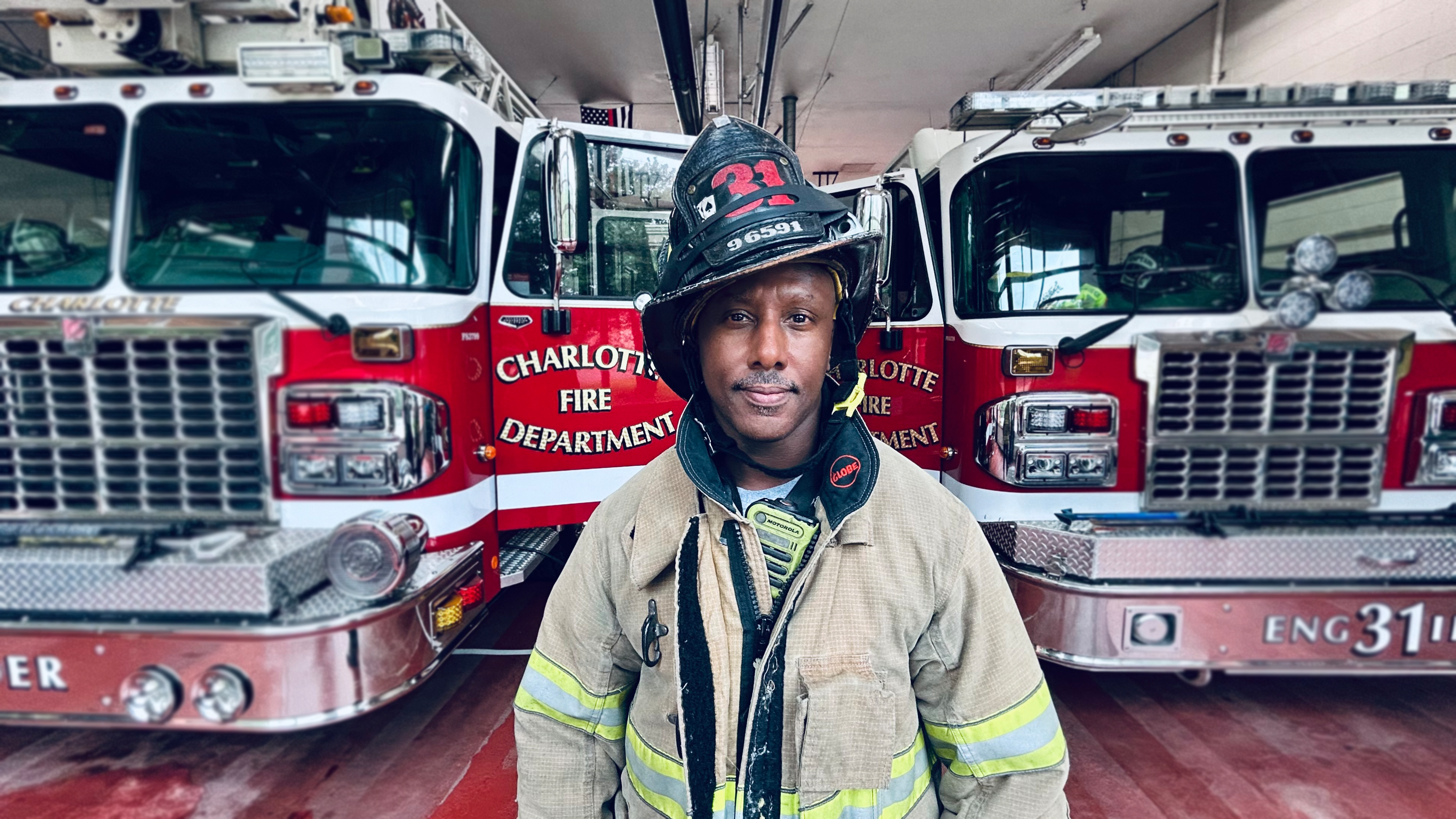
Engine 31 and Ladder 31 inside the bay at Charlotte Firehouse 31, where Meylor is back to full duty.
Today, at 54, Meylor is cancer-free. His follow-up tests remain clear, and he is back to full duty at Charlotte Firehouse 31. At home, he and Bibi remain a team, the same way they faced his cancer, they now face life together. The experience left a mark, one that has changed how he views his role in the fire service. “We train to fight fires, rescue people, handle emergencies,” he said. “But we also have to take care of each other in ways that have nothing to do with a fireground. That means talking about the stuff that is hard to talk about.”
Charlotte Fire Chief Reginald Johnson says firefighters like Meylor are making a difference by sharing their stories. “It takes courage to talk about something so personal,” Johnson said. “When one firefighter opens up, it gives others permission to do the same, and that can lead to early detection, better outcomes, and lives saved.”

Meylor in full turnout gear at Firehouse 31, a symbol of resilience after a life-changing diagnosis.
For Meylor, the shift from isolation to advocacy was not instant. But now, he is committed to making sure no firefighter in Charlotte faces prostate cancer alone. “I didn’t know anyone who had it when I was diagnosed. Now, if someone else hears those words from their doctor, I want them to know they have got someone to call,” he said. “That is how we fight this, together.”
Editor’s note: Facing the Fire Within is a four-part series sharing the personal stories of Charlotte Firefighters diagnosed with prostate cancer. The series aims to raise awareness, encourage early detection, and ensure no firefighter faces this battle alone.
Read more about what Charlotte Fire is doing to fight cancer in our department-wide overview: FIRE'S PUSH TO BEAT CANCER